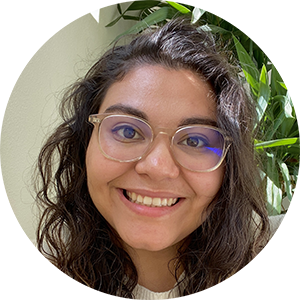When I was a sophomore at Adelphi University, I heard about ASHA’s Student to Empowered Professional (S.T.E.P.) Mentoring Program during our chapter’s NSSLHA meeting. As soon as I learned about the program’s mission, I immediately started to draft my application. Coming from a small undergraduate program, I felt it would be a great way to expand my network, hear about real-life experiences from speech-language pathologists (SLPs) in a setting of interest to me and connect with them on a professional and personal level. It was especially important to me to gain mentorship from an SLP with a similar cultural background as me so I could hear about their experiences as they navigated the field. I remember the excitement I felt when I was matched with my mentor, Mabel Lam. We talked about our interests in the field, the challenges that we faced during education/therapy, and our culture. Throughout our relationship, we were able to update each other about our personal lives while also confiding in each other about our lived experiences. My relationship with Mabel was one of the 2,500 mentee/mentor relationships in the S.T.E.P. community.
I spoke with Olivia Kincaid, a speech-pathology graduate student at the University of Washington, and Victoria Joseph, a communication sciences and disorders (CSD) student at Hampton University, about their experiences in the program. As I listened to them and reflected on my own experiences, it was evident that mentorship has a huge impact on the lives and academic careers of students, especially those who identify with underrepresented communities. Mentorship allows mentors and mentees to learn from one another and grow. Even though my partnership with my mentor formed several years ago, the benefits and influence that S.T.E.P. has are lifelong.
What motivated you to apply for the S.T.E.P. Mentorship program?

Olivia: I wanted to network at a national level and learn about other professionals of color in the field. I also wanted to learn about how being an SLP varies in different places around the country. Finally, I really wanted to see if other people had similar experiences to me—and how they learned to navigate them.

Victoria: I had been to many virtual events during my undergraduate career regarding the importance of mentorship in the field of CSD, and as my nerves grew bigger about applying to grad school, I figured it was time to find a mentor. Therefore, I took matters into my own hands and used the widely known S.T.E.P. platform to find a resource that would help guide me through my journey and [that would match me with a mentor who could] connect with me culturally—both through our shared career interests and outside of my immediate support group.
In what ways has your mentor helped you? In what ways have you helped your mentor?
Olivia: My mentor showed me how completely different things are in other states and countries. She also showed me different ways to think about being an SLP and what we do. As a post-baccalaureate student, I was interested in learning about doctoral programs, positions in higher education, and what graduate school could look like. S.T.E.P. helped answer some of those questions.
Victoria: Even though my experience was slightly different than most, the S.T.E.P. mentorship program still gave me the opportunity to find a great mentor with whom I’ve developed a great relationship. My initial experience with the program did not go as anticipated because my mentor and I weren’t able to connect. However, my classmate had a good relationship with her mentor, and her mentor ended up being my mentor, as well, after we all met together on Zoom. My mentor gave me the platform to do research and present at a major conference at the student level. We relied on each other heavily during this process, as we were both in school to further our education and had other obligations in our everyday lives. Since we met, she has been a gem and a major supporter during my graduate school career.
What advice do you have for students who are considering applying for the S.T.E.P. program?
Olivia: There is no harm in applying, and it is really flexible! If you ever feel like it’s not working out, you can make a change. If you ever feel like it’s too much, you can talk to your mentor about it and scale back what you are doing. This is all facilitated by what you are looking for from a mentor, which is pretty cool! In my experience, S.T.E.P. is something that can fill your cup up and bring an additional level of support.
Victoria: Do not hesitate to apply—and do it NOW. It is very beneficial to be able to talk and communicate with someone who has walked the paths you’re currently walking. It is also great for networking purposes—to build connections with professionals outside of your familiarity. There are many talented, caring, and hardworking people offering to be mentors on this platform, and I think all students should take advantage of this opportunity.
Why is mentorship particularly important for CSD students from underrepresented backgrounds?
Olivia: In my experience, it was extremely difficult to find mentors locally that were from underrepresented populations, so finding mentors in CSD through S.T.E.P. made me feel less alone—especially when applying to graduate school. It was also crucial for me to be able to network with other professionals to learn and give me access to opportunities. I think that this field is riddled with barriers, and it is nice to meet and network with other professionals with whom you can share and understand some of your lived experiences.
Victoria: Mentorship is a core factor in training students for the professional world and is especially important when training students in health and educational fields such as CSD. As an African American female, based on personal experiences, I can attest that experiences in CSD do differ for students of various backgrounds. Having good mentorship experiences significantly affects the retention as well as recruitment of students into the field of CSD. My experiences with mentorship have been so positive, and I’m driven to continue the work and become a mentor who can have a positive impact on students in the future.
Mentee enrollment is open now through February 28, 2023. Learn more and enroll today!

